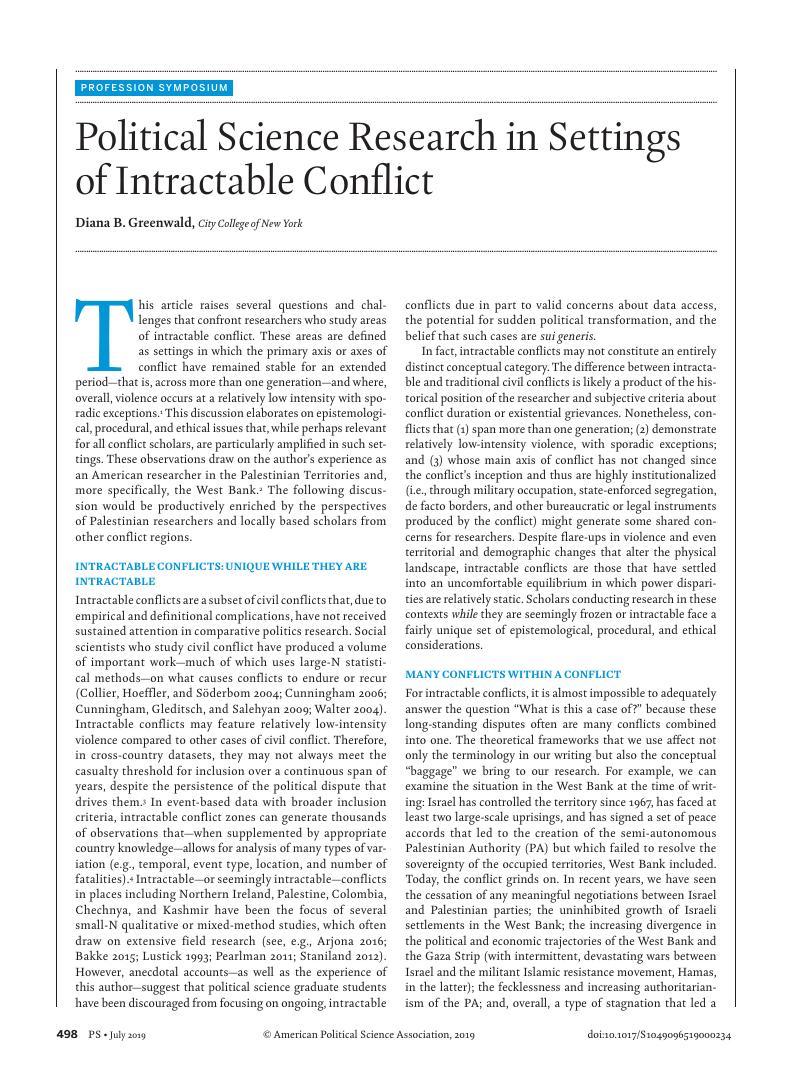Crossref Citations
This article has been cited by the following publications. This list is generated based on data provided by Crossref.
Rudloff, Peter
and
Vinson, Laura Thaut
2023.
Surveys in Communities Divided by Ethnicity and Conflict: Challenges, Possible Solutions, and Lessons Learned from a Survey in Jos, Nigeria.
Sociological Methods & Research,
Vol. 52,
Issue. 3,
p.
1340.



